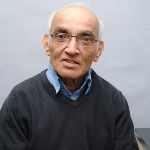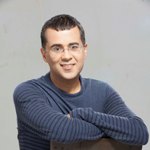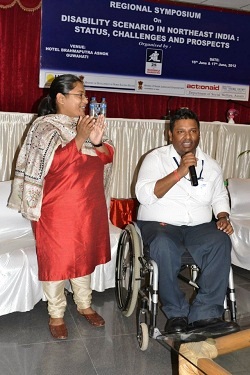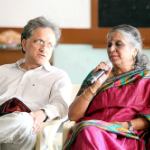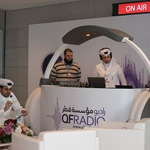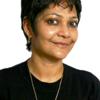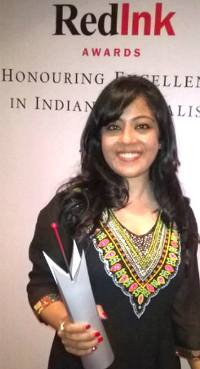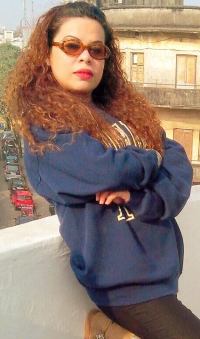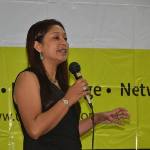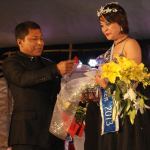‘Don’t judge us by our beards’
My first appointment for this book was with a young Muslim graphic designer from Delhi. While I waited for him at a coffee shop at the appointed time, he sent me a text message saying he would be delayed slightly because of ‘maghrib ki namaaz’
(evening prayers) but should be with me soon, ‘inshallah’. My heart sank. I had visions of someone in a flowing beard and skull cap, and spouting religious pieties. But when Aqeel Ahmed arrived, slightly breathless and fiddling with a Blackberry, he
was nothing like I had imagined: he wore a tweed jacket over an open neck designer shirt and faded blue denim jeans. He did have a beard but it was more Lenin than Imam Bukhari: the sort of person you’re more likely to encounter in an up-market bar on an evening than in a mosque.
As we settled down—I with a cup of tea while he ordered cappuccino with ‘lots of sugar’, and a Danish pastry—Aqeel told me that he was the only ‘namaazi’ in his family.
‘You can call me the odd mullah out in my family,’ he joked. Neither of his parents (his father, a retired civil engineer from Madhya Pradesh, and his mother a housewife) was religious and the only sibling—a brother, slightly older than him, was a ‘communist’. But he insisted that he had ‘no issues’ with those who didn’t share his enthusiasm about religion, and said he was against attempts to impose religion on others. ‘In the end it is between you and your creator, and nobody has any business telling others what or what not to do,’ he said.
His own fiancée was ‘quite casual’ about religion. ‘She has no interest in religion but that’s her business. I still love her and we will marry in the summer, inshallah.’
But did he view non-practicing Muslims as ‘lesser’ Muslims? ‘I have never thought of it in terms of ‘fuller’ or ‘lesser’ Muslims. In any case, it is not for me to judge others.’
How important was his religious identity to him?
‘I’m proud of it and quite happy, in your words, to ‘flaunt’ it. I want to tell the world: look at me I have a beard and I’m a practicing Muslim but I am also educated, a successful professional, and as liberal as anyone else. It is my way of disabusing my non-Muslim friends of the idea that any Muslim in a beard is a fundamentalist. People of other faiths proudly wear religious symbols in public—and quite rightly so. So why should I feel embarrassed or apologetic?’
I asked Aqeel whether he agreed that Muslim women were oppressed and Muslims had become increasingly intolerant of free speech.
‘Of course,’ he said without hesitation,‘and I don’t blame the clergy and fundamentalists alone for it. I also have issues with liberal Muslims. They only talk and criticise but don’t do anything. Let them roll up their sleeves, dirty their hands...all they do is lecture from the sidelines.’
Finally, I asked him how he would describe himself, and what was it like being a young Muslim in India?
‘I would describe myself as a proud Indian Muslim—a modern citizen of a secular and liberal country. This is the only country I know, and I won’t go anywhere for love or money. Yes there are problems, and Muslims face prejudice, but I am optimistic that we’ll overcome all that, inshallah.’
Would he call himself a ‘liberal’ Muslim?
‘I think it is very patronising to apply such labels. And why is that only Muslims are categorised as liberals and fundamentalists? But since you ask, yes, I would like to believe that I am a liberal even if others may not think so because of my beard and the fact that I go to a masjid five times a day,’ he said, and then, after a pause, shot back with some irritation:
‘You’ve been interrogating me for now close to three hours, what do you think? Do I sound like a fundamentalist to you? Don’t judge us by our beards, please.’
After the meeting, as he rose to go, Aqeel suggested that I return to India.
‘India is the safest and best place for Muslims to live. Do come back,’ he said almost beseeching me.
I had to assure him that I had moved abroad for professional reasons and not because I didn’t feel safe in India. But, interestingly, it was a sentiment (‘India is the best and safest place for Muslims’) that I was to hear again and again from young Indian Muslims.
Meanwhile my first, somewhat cynical reaction, as I reviewed my notes of the interview, was that his answers seemed too pat and politically correct. Had he been bluffing me? Feeding me well-rehearsed lines in order to present himself as a ‘liberal’ and ‘modern’ young Muslim? So, I ran a background check on him and was happy to discover that Aqeel was for real. In fact, it seemed that he had been rather modest in his claims. I learned that as a university student he was known as a ‘Young Turk’ for his liberal views, and was once thrown out of a local mosque after he questioned the validity of a fatwa an Imam had issued. He also ran a successful campaign against attempts by conservative student groups to impose a ‘dress code’ on Muslim students.
So how did he come to have a beard and stuff?
To find out, I met Aqeel’s father, Jameel, who introduced himself as the ‘original Aqeel’, jokingly alluding to his son’s strong resemblance to him. He said he himself had been a ‘flag-waving agnostic’ all his life, and still was. Nor had Aqeel shown any interest in religion until a few years ago. I was amused how Aqeel’s father kept saying that his son had been a ‘normal child’ till he started showing signs of religiosity.
Courtesy: Rupa Publications

